< Reconstruction:Proto-Turkic
Reconstruction:Proto-Turkic/tiakïgu
Proto-Turkic
Etymology
From Proto-Turkic *tiakï + *-gu. Cognate to Proto-Mongolic *takïxa (“hen”), Khitan [script needed] (teqoa, “hen”) and Proto-Tungusic *tiaku (“hen”), but they might be interdialectal loans ultimately going back to the Proto-Turkic form.
Declension
Declension of *tiakïgu
| Singular 3) | |
|---|---|
| Nominative | *tiakïgu |
| Accusative | *tiakïgunï, *tiakïgug 4), *tiakïgunïg 1) |
| Genitive | *tiakïgunïŋ |
| Dative | *tiakïguka |
| Locative | *tiakïguda |
| Ablative | *tiakïgudan |
| Allative | *tiakïgugaru |
| Instrumental 2) | *tiakïgun |
| Equative 2) | *tiakïguča |
| Similative 2) | *tiakïgulayu |
| Comitative 2) | *tiakïgulugu |
1) Possibly in Pre-Proto-Turkic.
2) The original instrumental, equative, similative & comitative cases have fallen into disuse in many modern Turkic languages.
3) Plurality is disputed in Proto-Turkic. See also the notes on the Proto-Turkic/Locative-ablative case and plurality page in Wikibooks.
4) Found in the Old Turkic era.
2) The original instrumental, equative, similative & comitative cases have fallen into disuse in many modern Turkic languages.
3) Plurality is disputed in Proto-Turkic. See also the notes on the Proto-Turkic/Locative-ablative case and plurality page in Wikibooks.
4) Found in the Old Turkic era.
Descendants
- Serbi—Mongolic:
- →? Proto-Tungusic: *tiaku
- Manchu: ᠴᠣᡴᠣ (coko)
- Oghur:
- Common Turkic: *taqïɣu
- Oghuz:
- Karluk:
- Kipchak:
- Armeno-Kipchak: դավուխ (tavuχ), դավուղ (tavuɣ)
- Kipchak: tauc (tawuq)
- Mamluk-Kipchak: طاووق (ṭawuq)
- West Kipchak:
- North Kipchak:
- South Kipchak:
- Siberian:
See also
| Animals in Turkic | |||||
|---|---|---|---|---|---|
 Dog |
dog: *ït |
 Hunting Dog |
hunting dog: *eker |
 Hen |
hen: *tiakïgu |
 Lark |
lark: *torgay |
 Pigeon |
dove, pigeon: *kȫkerčin |
 Quail |
quail: *bïldurčïn |
 Sparrow |
sparrow: *serče | .jpg.webp) Hawk |
hawk, falcon: *kïrguy |
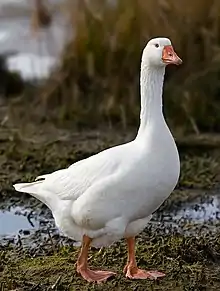 Goose |
goose: *kāŕ |
.jpg.webp) Wolf |
wolf: *bȫrü |
 Cow |
cow: *ingek |
 Calf |
calf: *buŕagu |
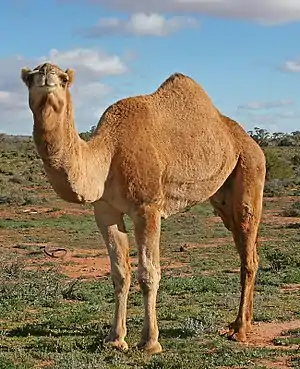 Camel |
camel: *tebe |
.jpg.webp) Young Camel |
young of camel: *kȫĺek, *botu |
 Horse |
horse: *at |
 Foal |
foal: *kulun |
.jpg.webp) Worm |
worm: *kūrt |
 Snake |
snake: *yï̄lan |
_(4).jpg.webp) Fox |
fox: *tilkü |  goat |
goat: *keči | 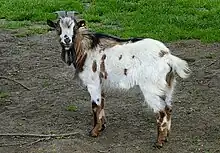 He-goat |
he-goat: *teke |
_male_6y.jpg.webp) Lion |
lion: *arsïlan |
 Fish |
fish: *bālïk | Abramis brama |
carp bream: *čapak |
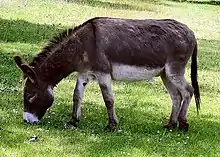 Donkey |
donkey: *eĺčgek |  Carp |
carp: *siāŕgan | 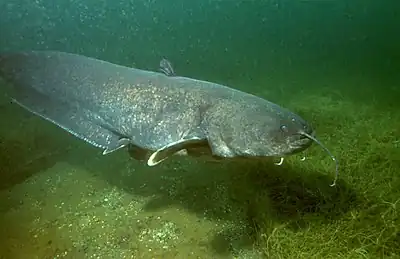 Catfish |
catfish: *yāyïn |
 Beaver |
beaver: *kunduŕ | 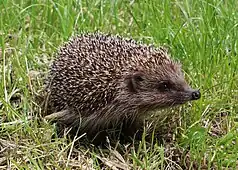 Hedgehog |
hedgehog: *kirpi |  Badger |
badger: *borsmuk |
 Fly |
fly, mosquito: *siŋek |  Bee |
wasp, bee: *ārï | .jpg.webp) Gadlfy |
gadfly: *bȫgen |
_2.jpg.webp) Moth |
moth: *küńe | 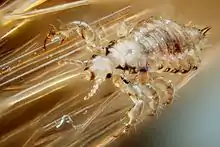 Louse |
louse: *bït | 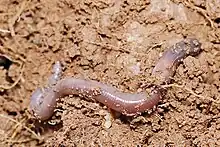 Earthworm |
earthworm: *sïbuĺgan |
 Yak |
yak: *kotuz | 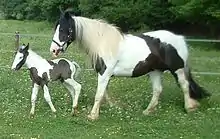 Colt |
colt: *sïp | 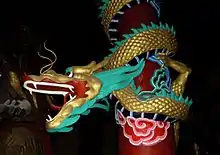 Dragon |
dragon: *siāŕgan |
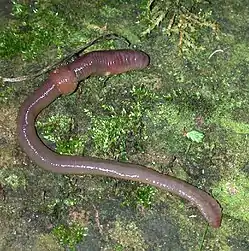 Worm |
worm: *kūrt | 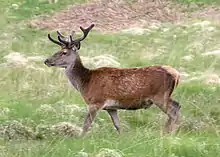 Deer |
deer: *keyik, *sïgun, *bulan, *bugu | 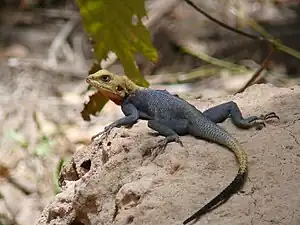 Lizard |
lizard: *keleŕ |
References
Further reading
- Starostin, Sergei, Dybo, Anna, Mudrak, Oleg (2003) “*t`i̯àk`à”, in Etymological dictionary of the Altaic languages (Handbuch der Orientalistik; VIII.8), Leiden, New York, Köln: E.J. Brill
- Clauson, Gerard (1972) “takı:ğu:”, in An Etymological Dictionary of pre-thirteenth-century Turkish, Oxford: Clarendon Press, page 468
This article is issued from Wiktionary. The text is licensed under Creative Commons - Attribution - Sharealike. Additional terms may apply for the media files.